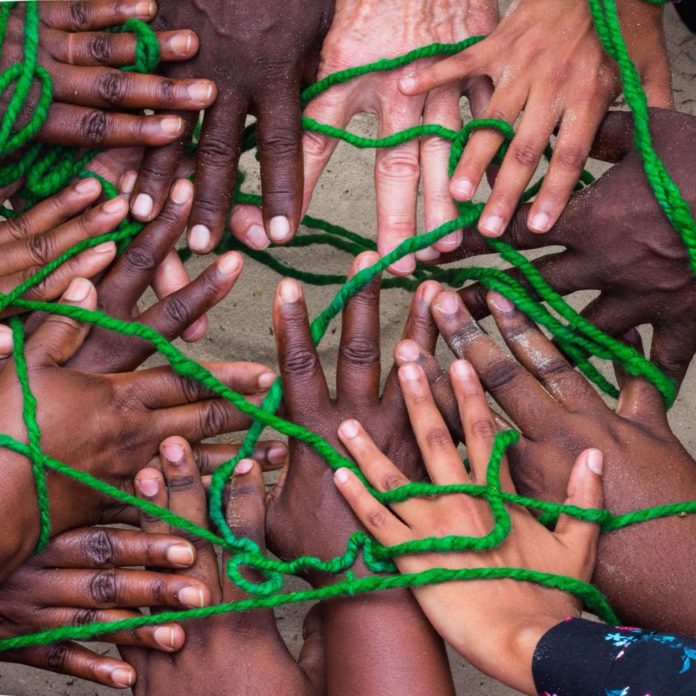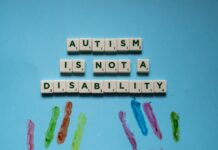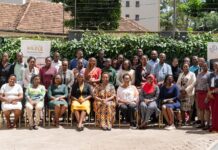By Sharon Kiburi
Nairobi, Kenya: Meet Zuria Wambui Omar, who has been bruised and traumatized by the pain of police brutality in her community. “I saw the gap and the need to bring people together, especially parents who were affected by extreme violence cases and profiling of our children in the community. Families had undergone police harassment and societal discrimination. The pain is excruciating; there is anger and families breakups. There was a need for the community to cope despite the economic challenges,” Omar narrates.
Omar sadly narrates her experience in community service in the Majengo and Pumwani area. “I am committed to peace restoration and peacebuilding,” she says.
Omar is a community worker with a heart for trauma healing. She empowers women in the community by forming psychosocial support groups that engage in training on financial growth, economic activities, and support.
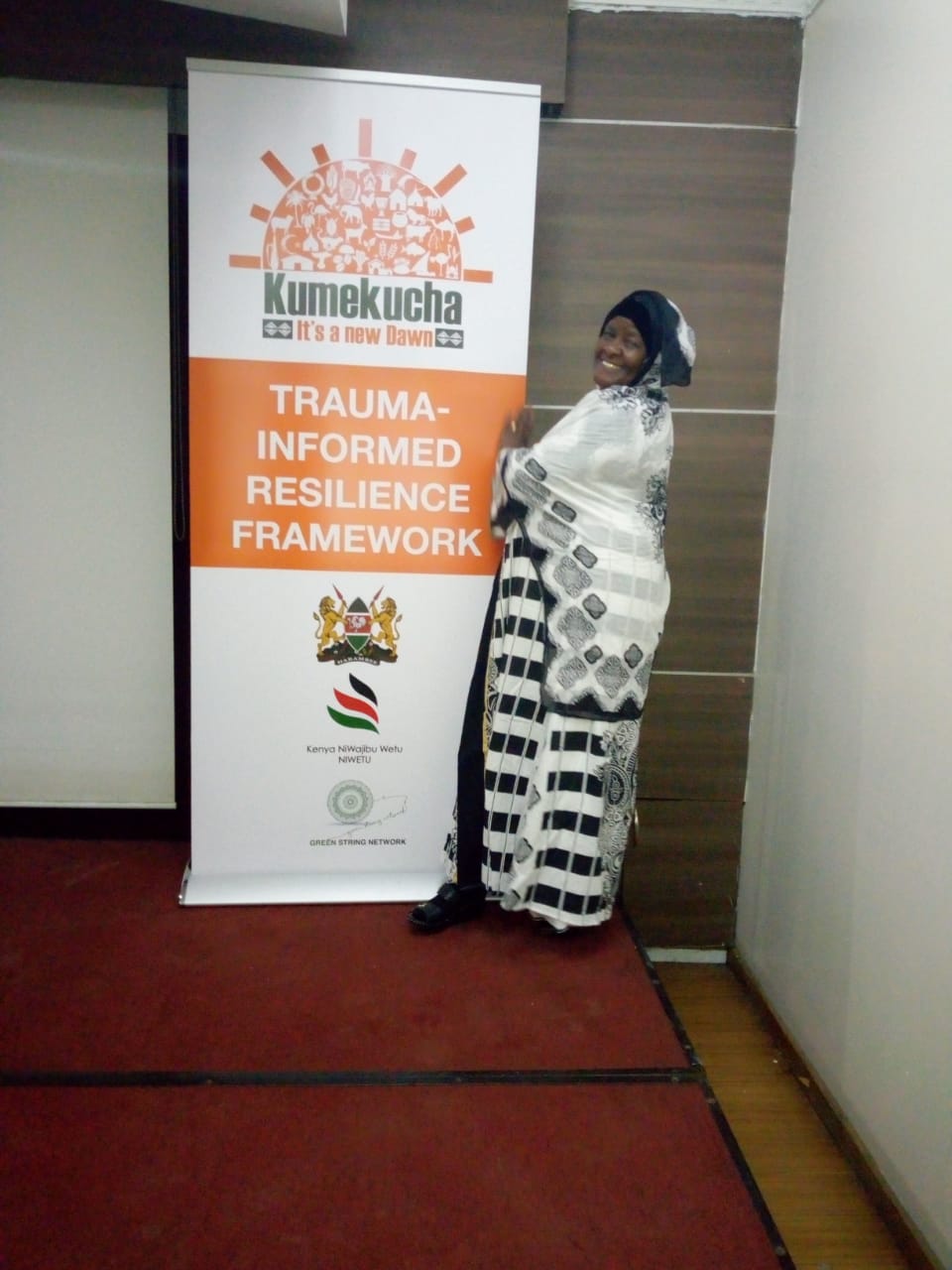
“The techniques of identifying and dealing with trauma that I learned from Green String networks were beneficial. I asked other ladies and people in training from our community to join hands and offer social connection support,” says Omar. This has enabled regular meetings and community support to people hoping to halt mental health occurrences amidst the Covid-19 pandemic and the community’s economic hardships.
“There is strength in social connection that is walking the journey together with others. For women and the youth with emphasis on peace,” adds Omar. She shares they have experienced painful events, but the healing journey with other community members has attained milestone growth.
“Trauma is what happens inside of you as a result of what happened to you. It is an overwhelming threat we do not know how to deal with,” to echo the words of Dr. Gabor Maté in the film, the wisdom of trauma.
The lack of social protection and uncertainty about tomorrow is also a significant source of trauma. Trauma is political; the structure of how different genders are treated in the event of an incident contributes to a large extent, how individuals process an event that could be traumatic.
“Support systems play a massive role in helping members address similar experiences amicably. Both male and female genders can be affected by trauma; however, their vulnerability level influences the degree to which they suffer from an unpleasant event. Socio-economic factors, for example, affect how the different genders differ. Less financially stable women may be more traumatized, by the end of a marriage, than their male counterparts who are the breadwinners and have less to lose,” reveals Angi Yoder-Maina Executive Director, Green String Network.
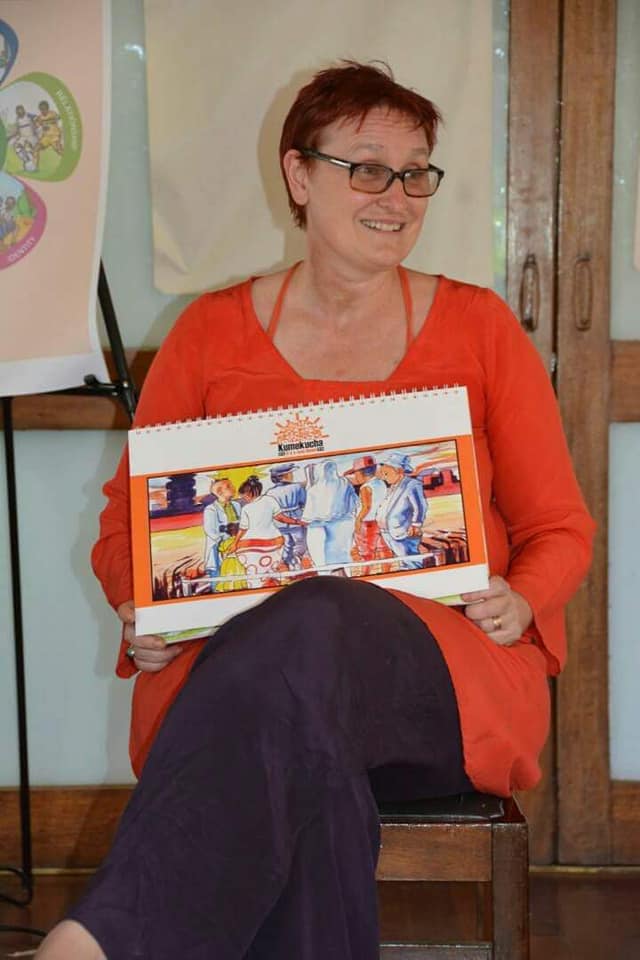
“Generally, women tend to have social support from church / religious groups and friends while men very often do not have deep conversations on issues affecting them with the people they call friends. As a result, they may experience more trauma than their female counterparts, ” said Yoder.
“Imagine being arrested on mistaken identity by police. Your family is asked to bring your national identification, passport, and birth certificate to prove whether you are a Kenyan. With all these documents available, the officers are still unconvinced they demand that you produce your nursery school report card or examination results as evidence of your nationality.”
Nine years ago, Ahmed Famau was profiled as an extremist. Famau was arrested eight times by administrative police officers on terrorism suspicion. The thirty-six-year-old Famau working as a Resource Facilitator on trauma has experienced police brutality and harassment. Trauma is a social problem that affects people mentally and physically.
“Trauma is not an event; it is how one perceives, internalizes, and is affected by something that happens/happened to them. Many of the factors in society affect how individuals experience life and may suffer from trauma. Trauma impacts all aspects of life ranging from politics, economics, education, and social affairs,” said Angi Yoder-Maina, Executive director of Green String Network. Yoder further says trauma is what happens to you as a result of a bad experience. For instance, people may experience trauma because of abuse, neglect, chronic violence, human rights abuses, and discrimination.
“In 2018, I was escorting my friend who was flying out of the country. We met police officers at Makadara who arrested me on illegitimate charges. They were insistent that I should prove that I am Kenyan through an identification card, something I had not carried at the moment,” narrates Famau. At the arrest, Famau and his two friends, one who was Canadian traveling back and his friend from Lamu who was underage, held no Identification cards and had difficulty elaborating their descent and their purposed meeting.
After the arrest, the police allowed Famau’s family to bring a passport and birth certificate showing that he was Kenyan. “Despite the proof, the officers were not satisfied, and they asked for nursery school results. A task that was an uphill task, since very few if any keep nursery school results saved anywhere,” said Famau.
As the police conducted their investigation, Famau and his friends stayed for two weeks in jail at the Mombasa central police Station. The investigations were concluded that it was a misidentification, and they were freed. “There was no remorse, neither apology from the police or administration for the wrongful arrest. This brewed bitterness in my heart,” said Famau.
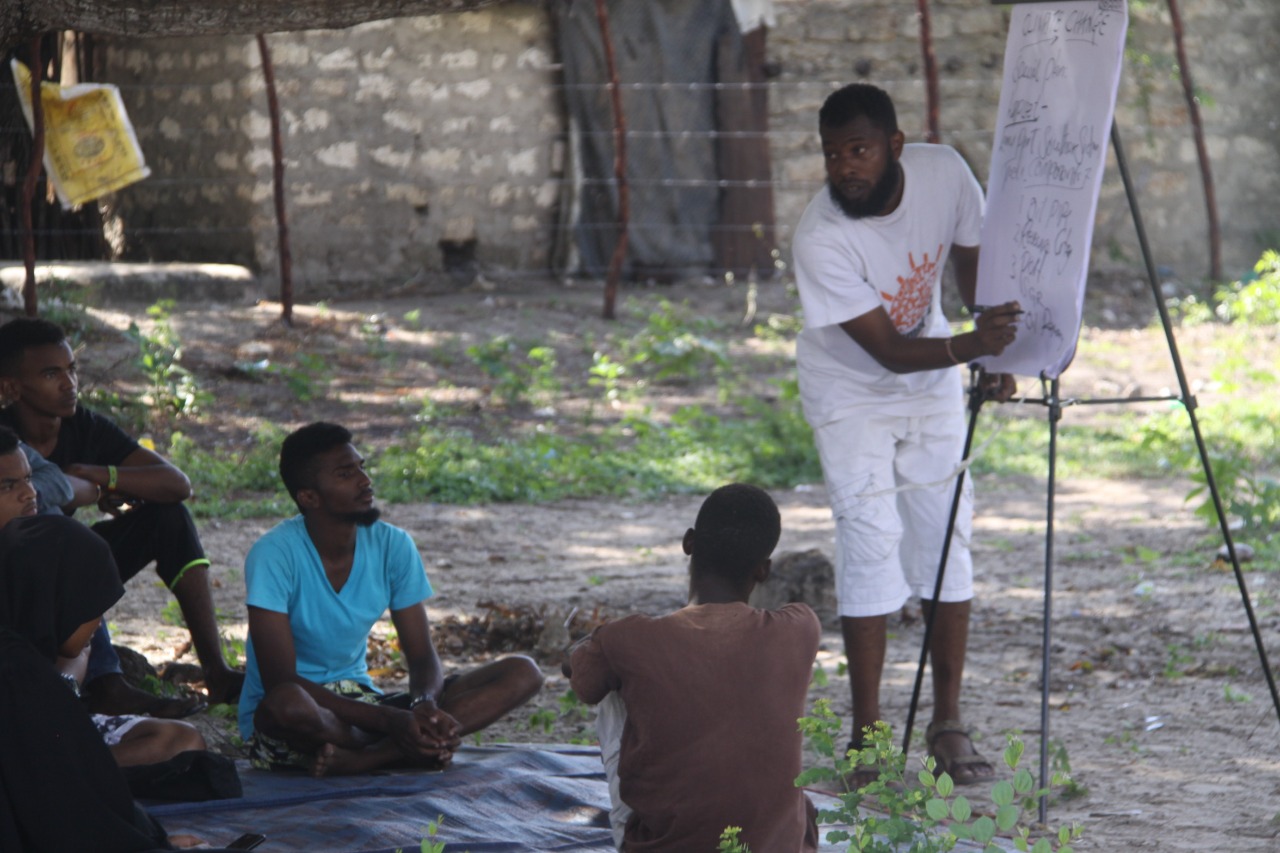
Speaking with Irene Tarago, a clinical Psychologist, she says psychological trauma is defined as the exposure to actual or threatened death, serious injury, or sexual violence in different ways such as: Directly experiencing the traumatic event(s), Witnessing, in person, the event(s) as it occurred to others, Learning that the traumatic event(s) occurred to a close family member or close friend. In cases of actual or threatened death of a family member or friend, the event(s) must have been violent or accidental, Experiencing repeated or extreme exposure to aversive details of the traumatic event(s) (e.g., first responders collecting human remains; police officers repeatedly exposed to details of child abuse).
Further, Irene adds trauma can be It is also characterized by the presence of one (or more) of the following intrusion symptoms associated with the traumatic event(s), beginning after the traumatic event(s) occurred, for instance, Recurrent, involuntary, and intrusive distressing memories of the traumatic event(s), Recurrent distressing dreams in which the content and/or affect of the dream are related to the traumatic event(s), Dissociative reactions (e.g., flashbacks) in which the individual feels or acts as if the traumatic event(s) were recurring. (Such reactions may occur on a continuum, with the most extreme expression being a complete loss of awareness of the present surroundings).
Famau recalls another incident that broke his heart in 2010; he traveled from Lamu to Mombasa at a checkpoint where he produced his identification. He was arrested and taken to the Mpeketoni police station. He spent three days in jail and was released. The officers said it was a misidentification. “I think at this point since I had a long beard, my outwards appearance could have been mistaken to be of that of Somali descent, and hence they were compelled to check my credentials. Still, no one apologized for taking me through such pain,” said Famau.
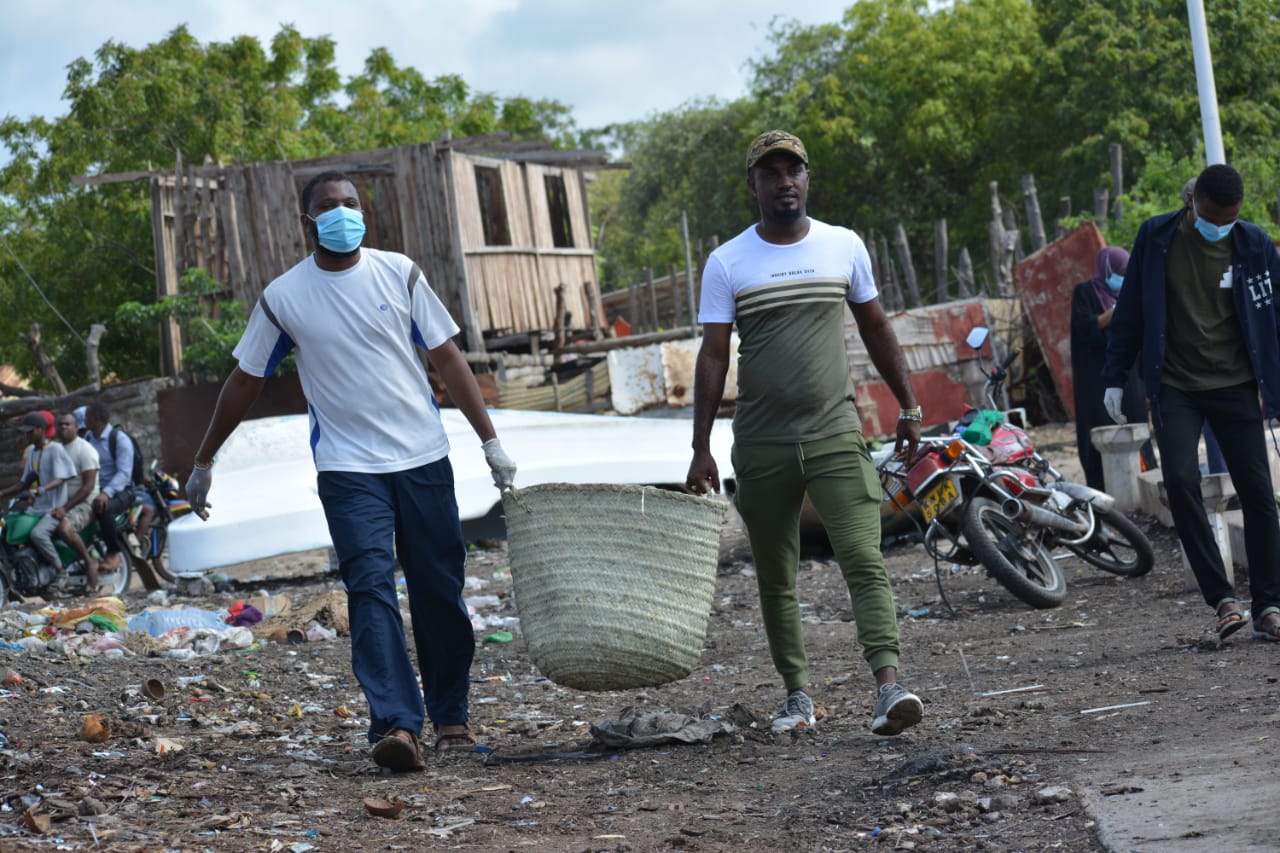
In addition to experiencing wrongful arrests eight times in his own country, Famau has seen biases based on his Islamic religion. His looks land him in jail, where he has to explain himself and prove that he is a Kenya Citizen. “These events made me bitter; I hated the police. At one point, the thought to trade camps and; join the so-called ‘Al Shabaab team” crossed my mind. If they could help me take vengeance on the police, I could have. However, my love for my community, plus being newly married, constrained me,” affirmed Famau.
An opportunity for training for eleven days by the ‘Green String Networks’ on trauma healing would go on to change the course of Famua’s life. “The training helped me know where the source of my pain was. I was taught tactics on how to deal with the pain when a trigger occurred. Being with a group of people who experienced diverse events that traumatized them and shared them made me understand the pain people face in society,” said Famau. He was motivated to help his fellow young people in his community who were undergoing similar problems. He reached to Green String Networks for support to train his peers.
The community training began with thirty people, fifteen becoming trainers of others so far they have extended training to about nine thousand youths. “Trauma healing is not a one-time incident. However, as I help others, I find myself healing in some areas as well,” said Famau. As a community volunteer for Green String Networks, a project to collaborate with police presented itself. “When I first started this project, I said no, I cannot be involved. They were the source of my pain; I could not possibly work with them,” narrates Famau.
“I decided to attend the first training with the local police and the community just to hear what they had to say. It changed my whole perception of the police and the administrative force. I saw the pain and difficulties that come with their work. I decided to help them cope and work with communities,” explains Famau. He now trains police officers on trauma healing and good integration with the communities. He has had the privilege to train over one thousand officers, including some from Kamiti Maximum prison, Shimo La Tewa, Kiganjo College, and police administrators in Lamu in his hometown.
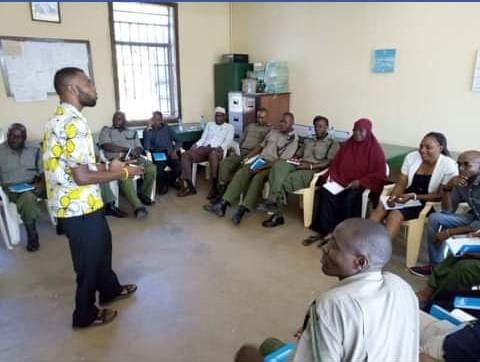
“Forgiveness opened doors for me to do more significant work as a community worker than I could have ever dreamt of. The project to integrate the police and communities in trauma healing has taken me to France, Mexico, and South Sudan and even given me an audience with the president of Kenya,” said Famau.
He urges Kenyans to see each other as human beings since we are all God’s creations and should spread love and be open to forgiving others to ensure a healthy society.
In the traditional African society, socialization was a part of life most people knew. People moved with their age sets and groups. There was a social gathering and social activities like games, weddings, initiation ceremonies, among others. Civilization and colonialism contributed to many African men not meeting in groups because it was considered a threat or they were suspected of planning Something wrong. This may have sub-conscientiously killed group socialization for African men.
Civilization has expedited a situation by encouraging competition instead of collaboration; the education system has built individualism and capitalism. The effects of the colonialism period are still being experienced today in the Kenyan Judiciary, the police administration, the education systems, and the conspicuous division of the haves and have nots.
Trauma, therefore, can linger throughout one’s lifetime, guided by how one responds to the triggers.
“If one does not deal effectively with trauma caused by an occurrence, specific reminders can trigger it in a present situation. This can likely cause one to experience pain emotionally and mentally,” says a resource facilitator on trauma from Lamu.

